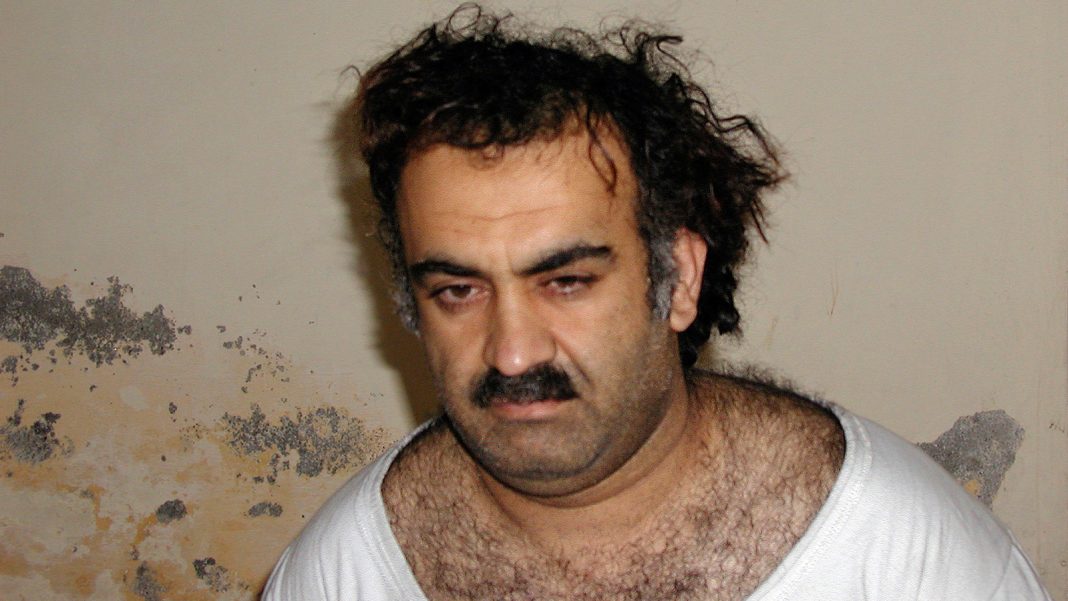U.S. Defense Secretary Lloyd Austin made a significant decision on Friday, revoking the plea deal for Khalid Sheikh Mohammed and two other 9/11 defendants. This move comes just two days after a plea agreement had been reached with prosecutors, surprising many. Austin’s decision places the death penalty back on the table for Mohammed and his accomplices, shaking up the previously established agreement that guaranteed them life in prison instead.
The initial announcement of the plea deal had sparked mixed reactions among 9/11 families. While some had come to accept the idea of the defendants serving life sentences, many were angered by the prospect of them escaping the ultimate punishment for their heinous crimes. The news of Austin’s revocation of the plea deal will likely reignite these strong emotions and reopen the debate about the appropriate punishment for those responsible for the 9/11 attacks.
The decision to revoke the plea deal was quietly revealed in a memo posted on the Pentagon’s press site late on Friday night. In the memo, Austin stated that he would be assuming direct oversight of the military tribunal at Guantanamo and immediately canceled the agreement. By taking personal responsibility for this decision, Austin is sending a clear message that he believes the fate of the 9/11 defendants should rest with him.
It is important to note that this development does not necessarily mean that the defendants will now face the death penalty. Austin’s revocation of the plea deal simply puts the possibility of capital punishment back on the table. The ultimate decision on their punishment will still depend on various factors, including the outcome of the military tribunal proceedings and any future negotiations between prosecutors and the defense.
The implications of this decision extend beyond the fate of the 9/11 defendants themselves. It raises questions about the future of plea deals in high-profile cases involving acts of terrorism or other grave offenses. Plea agreements are often seen as a way to expedite the legal process and secure convictions without the need for lengthy trials. However, in cases as significant as the 9/11 attacks, where emotions run high and justice is paramount, the acceptance of life sentences instead of the death penalty can be highly contentious.
The revocation of the plea deal by Defense Secretary Austin demonstrates the importance of keeping the public’s trust in the justice system. By assuming direct oversight of the military tribunal and taking personal responsibility for the decision, Austin is showing a commitment to transparency and accountability. This move also reinforces the idea that such a significant decision should not be made lightly and should be subject to rigorous scrutiny.
As this story continues to unfold, it is crucial to stay updated on any new information that may emerge. The decision to revoke the plea deal for the 9/11 defendants has reignited the debate surrounding their punishment and the role of plea agreements in cases of extreme significance. The coming days and weeks will undoubtedly shed more light on the implications of this decision and its potential impact on the pursuit of justice for the victims of the 9/11 attacks.
In conclusion, Defense Secretary Lloyd Austin’s revocation of the plea deal for Khalid Sheikh Mohammed and two other 9/11 defendants has once again placed the death penalty on the table. This decision has stirred strong emotions among 9/11 families and reopened the debate about the appropriate punishment for these individuals. Austin’s assumption of direct oversight and personal responsibility for the decision demonstrates a commitment to transparency and accountability. The implications of this move extend beyond the fate of the defendants themselves, raising questions about the future of plea deals in high-profile cases. As this story develops, it is important to stay informed and consider the broader implications for the pursuit of justice.


